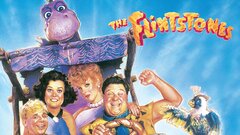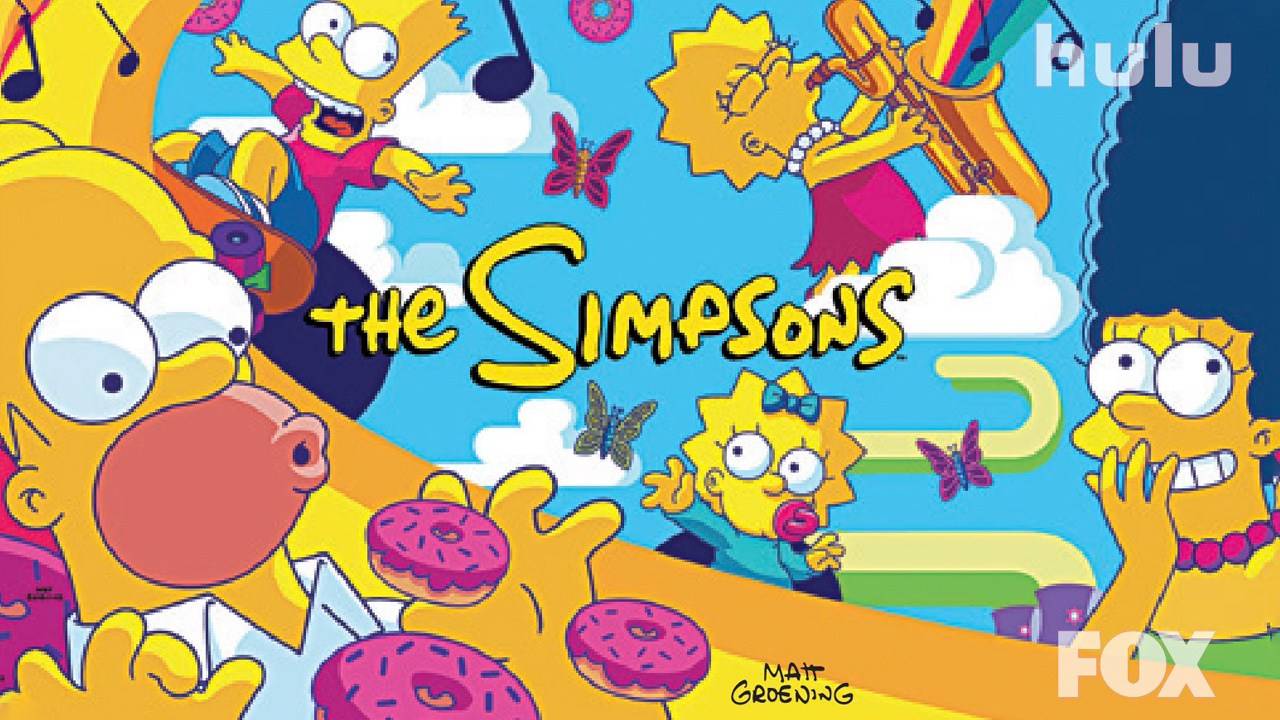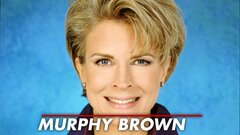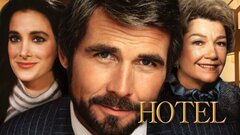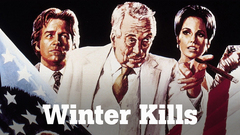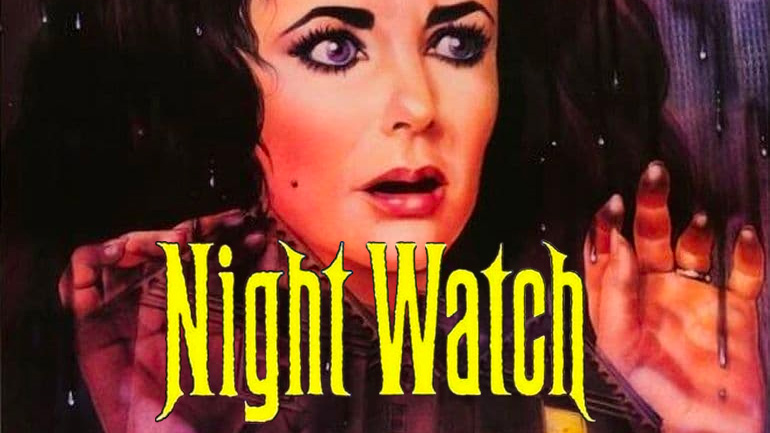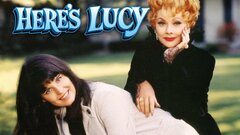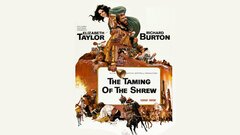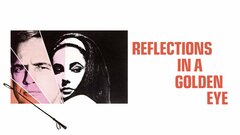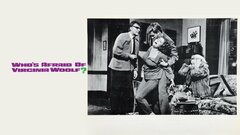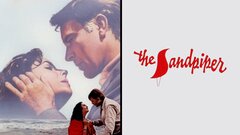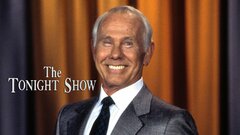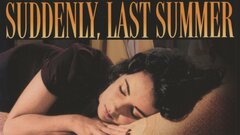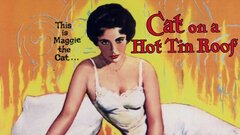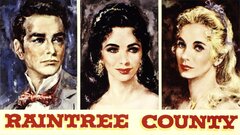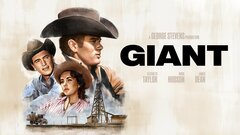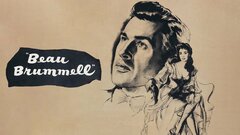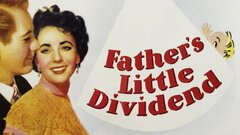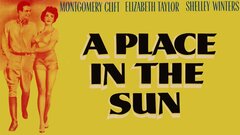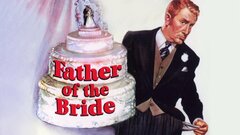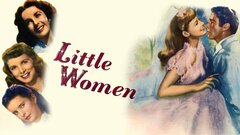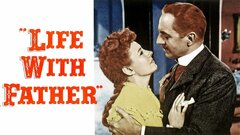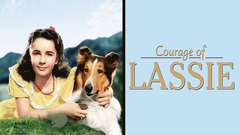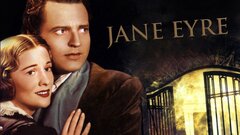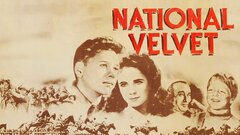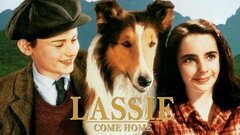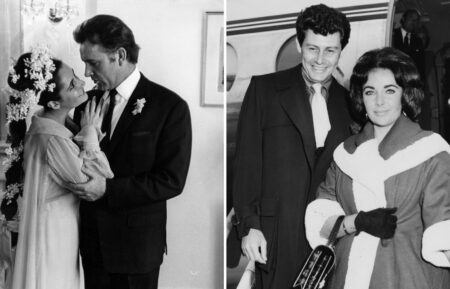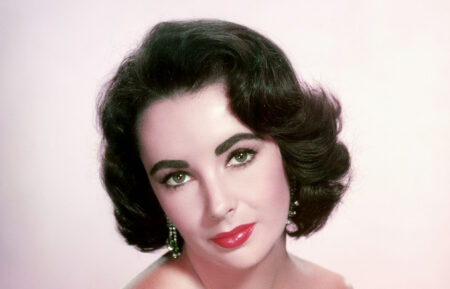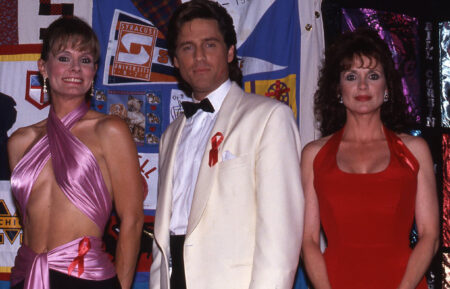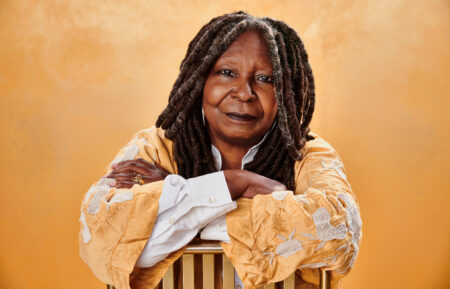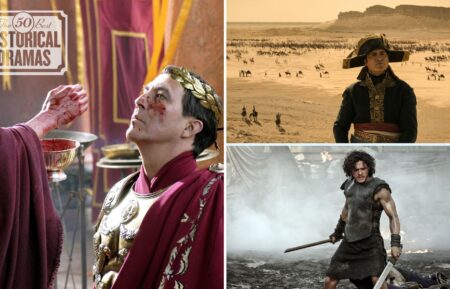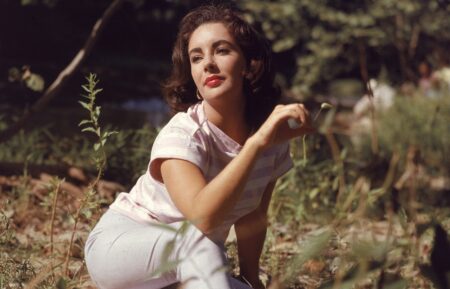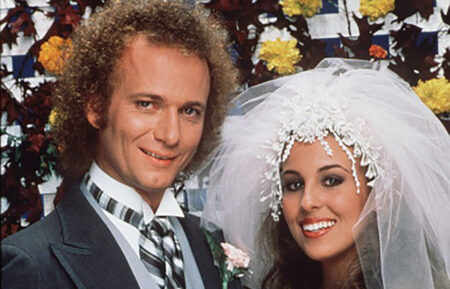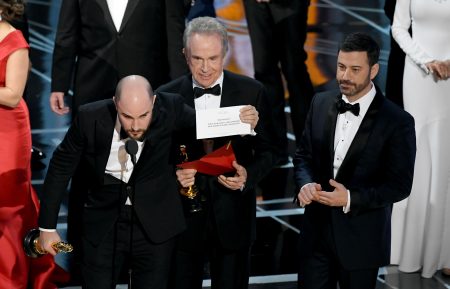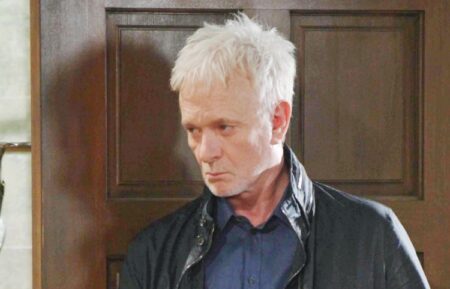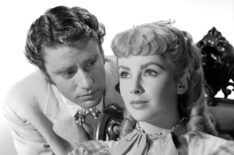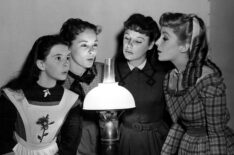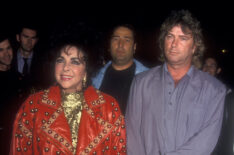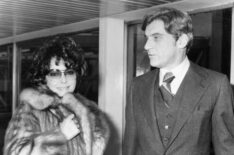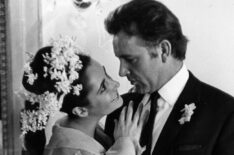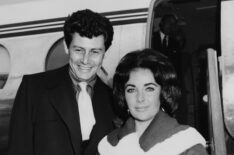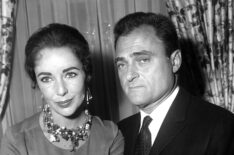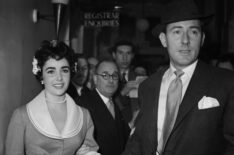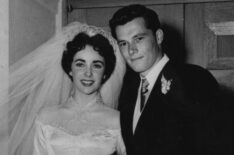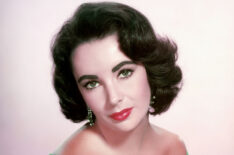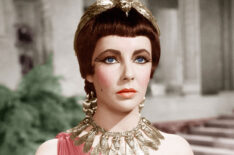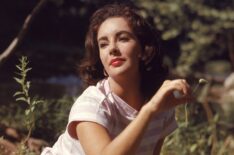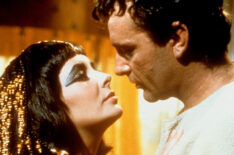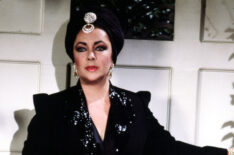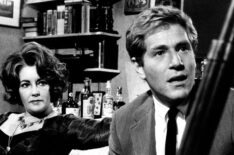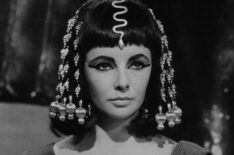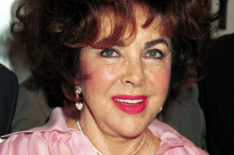With the arguable exception of Marilyn Monroe, no other star from Hollywood's Golden Age exerted a more enduring hold on the public's imagination than the violet-eyed beauty Elizabeth Taylor. Taylor twice won the Best Actress Academy Award, for "Butterfield 8" (1960) and "Who's Afraid of Virginia Woolf?" (1966), respectively, and the American Film Institute ranked the five-time Oscar nominee seventh on its list of the "25 Greatest Women Screen Legends" in 1999. She also gave indelible performances in such classics as "National Velvet" (1944), "A Place in the Sun" (1951), "Giant" (1956) and "Cat on a Hot Tin Roof" (1958) - all of which added to her reputation as one of the most talented, larger-than-life actresses to have ever graced the silver screen.
Ironically, the raven-haired, violet-eyed screen siren elicited more pity than awe when she entered the world on Feb. 27, 1932. The second child of Francis and Sara Taylor, American expatriates living in London, the infant Elizabeth Rosemond Taylor suffered from hypertrichosis; which left her tiny body completely covered in soft black hair. Although her parents were understandably alarmed, their worries vanished after a few weeks when the unsightly hair fell away, revealing their newborn daughter's exquisite beauty.
While Francis Taylor managed his uncle's art gallery, Sara lavished attention on Elizabeth, whom she simultaneously indulged and controlled. Both Elizabeth and her adored older brother Howard, three years her senior, were raised in privilege. Every whim was indulged, but at the same time, Sara carefully groomed Elizabeth to carry herself with poise, particularly after the four-year-old captivated an audience with her impromptu solo performance during a dance recital. A former actress with a handful of 1920s-era stage roles to her credit, Sara immediately recognized her daughter's nascent star quality. The same could not be said, however, of Hollywood film executives.
In 1941, two years after the Taylors left London to settle in Los Angeles, Sara Taylor finagled a six-month contract for nine-year-old Elizabeth at Universal Pictures; the ever enterprising stage mother had befriended the wife of Universal Pictures chairman J. Cheever Chowdin. Then a shy and sheltered little girl, Elizabeth made her inauspicious screen debut in a Universal short film, "There's One Born Every Minute" (1942) co-starring Carl "Alfalfa" Switzer of "Our Gang" fame. Taylor's performance as a bratty little girl in this quickie programmer failed to impress Universal's casting director Dan Kelly, who complained that Taylor's eyes were "too old" and that she did not "have the face of a kid." Subsequently dismissed by Universal, Taylor soon rebounded with an MGM contract, thanks to her father's friendship with producer Samuel Marx.
In the midst of shooting "Lassie Come Home" (1943), starring Roddy McDowall and Donald Crisp, Marx was desperately looking for a young girl to play the small but pivotal role of Priscilla, the granddaughter of a rich Yorkshire landowner. Despite her inexperience - she had no formal training, just her mother's incessant coaching - Taylor nevertheless beat out four other actresses for the part. The resulting film did little to boost her profile on the MGM lot; in fact, the studio promptly loaned her out to 20th Century Fox for a brief role in "Jane Eyre" (1944).
Although her mother micro-managed Taylor's life and career, the 12-year-old MGM contract player was no longer the malleable naïf, thrust onto a soundstage, as she had been during her brief Universal tenure. Determined to play the coveted role of Velvet Brown, the horseback riding heroine of "National Velvet," Taylor launched a major charm offensive against Lucille Ryman Carroll, the head of MGM's talent department. She won the demanding role, which required her to play an English country girl masquerading as a boy to ride her beloved horse in the Grand National Steeplechase.
Under Clarence Brown's sensitive direction, Taylor gave a spirited and utterly assured performance in this heartwarming adaptation of Enid Bagnold's novel, co-starring Mickey Rooney, Anne Revere, and another fresh-faced newcomer, Angela Lansbury. Thanks to "National Velvet," Taylor finally became a bona fide movie star. Unlike many of her classmates at the studio's little red schoolhouse, she never went through a career-ending "awkward stage." The ethereally lovely adolescent blossomed into a drop-dead gorgeous ingénue, equally believable playing teenagers and older women alike.
In 1949, the same year she played Amy March in MGM's glossy remake of "Little Women," the studio cast the 17-year-old as Robert Taylor's wife in the espionage thriller, "Conspirator." She acquitted herself nicely in both roles, but the proverbial jury was still out as to whether Taylor was an actress of depth, rather than simply a glamorous leading lady.
If not for director George Stevens, Taylor might have continued providing little more than eye candy in MGM films, like the crowd-pleasing "Father of the Bride" (1950), starring Spencer Tracy. Stevens, however, saw in Taylor the vulnerability, passionate abandon, and inner strength to play Angela Vickers, the ravishing socialite heroine of "A Place in the Sun" (1951), his adaptation of Theodore Dreiser's classic novel, An American Tragedy. Not since "National Velvet" had she tackled such a demanding role - or given such a multi-dimensional performance - as she did here, portraying patrician girlfriend of a poor but rabidly ambitious factory worker, so desperate to get ahead that he commits murder.
Challenged by Stevens and co-stars Montgomery Clift and Shelley Winters, Taylor erased any lingering doubts that she had the dramatic chops to tackle difficult roles. A critical and commercial smash, nominated for nine Academy Awards including Best Picture, "A Place in the Sun" should have brought Taylor choice dramatic assignments from MGM. By and large, however, the films she made over the next five years were mediocre at best. During this time, Taylor was generating more ink for her marriages - first, to hotel magnate Nicky Hilton (who she later claimed physically abused her), followed closely by British actor Michael Wilding (who would father two of her three children) - than her performances in such middling star vehicles as "The Girl Who Had Everything" (1953) and "The Last Time I Saw in Paris" (1954).
Once again, George Stevens effectively came to Taylor's professional rescue with another juicy role: the female lead in his sweeping, big-budget adaptation of Edna Ferber's Texas family saga, "Giant" (1956), co-starring Rock Hudson and James Dean. To play Leslie Benedict, a headstrong yet compassionate Virginia belle married to wealthy Texas cattle rancher Jordan "Bick" Benedict (Hudson), Taylor had to age 30-odd years convincingly. That she was more believable as a radiant newlywed than a graying, dowdy grandmother did not diminish what was an excellent performance that held up beautifully.
Yet while her male co-stars both received Academy Award nominations for Best Actor - Dean, posthumously - Taylor's finely modulated performance in "Giant" was overlooked by the Motion Picture Academy. Despite the snub for her work in "Giant," Taylor received something more - a chance to form on location a lifelong close friendship with Hudson, who would become one of several of her closeted gay best friends, including Montgomery Clift and fellow child star, Roddy McDowall.
A year later, she would finally receive the first of her five Academy Award nominations for a film that The New York Times film critic Bosley Crowther savaged as a "formless amoeba of a thing: " "Raintree County" (1957). Years in the making, MGM's expensive, Cinemascope adaptation of Ross Lockridge, Jr.'s Civil War-era novel cast Taylor as Susanna Drake, a mentally unstable New Orleans beauty married to an idealistic Midwesterner (Montgomery Clift) fighting for the Union. Laboriously directed by Edward Dmytryk, Taylor's histrionic performance was the only spark in this turgid, overblown film that was chiefly remembered for Clift's unfortunate appearance.
A near-fatal car accident during the film's production - which occurred after leaving Taylor's home in the Hollywood Hills - had left his formerly handsome face disfigured, so there was no consistency as to how he photographed throughout "Raintree County." Since the accident occurred not far from the Wilding home, not only did she race to Clift's side and keep him from choking to death by removing two of his teeth which had become lodged in his throat, she would nurse him back to health and provide as much nurturing as the tortured actor would allow. Due in no small part to personal demons and his inability to accept his disfigurement, Clift would become yet another imploder, self-destructive through drink and pills, who Taylor would attempt to help save.
Whereas "Raintree County" was best forgotten, Taylor's follow-up featured one of her very best performances. Unfortunately, as was becoming the norm in her life, career highlights came in tandem with personal tragedies. Having divorced Wilding in 1957 and that same year married husband No. 3 - film producer Mike Todd - Taylor was, for the first time in her married life, blissfully happy with a man completely in love with her. She had recently given birth to their daughter, Elizabeth "Liza" Todd, and was feeling a bit under the weather when Todd took a trip she had intended to accompany him on.
Unfortunately the showman's private plane, "The Lucky Liz" crashed near Grants, NM on March 22, 1958. Taylor was so grief-stricken, she had to be sedated upon hearing the news. Still mourning the loss of her larger-than-life showman husband, she nonetheless plunged into the role of Maggie in Richard Brooks' powerful adaptation of Tennessee Williams' Broadway smash, "Cat on a Hot Tin Roof" (1958). The role fit Taylor's screen persona as tightly as the slip she wore in many scenes: Maggie is tempestuous yet tender; a vulnerable woman who refuses to be an emotional doormat. The scenes between Taylor and co-star Paul Newman crackled with sexual electricity. The film would bring Taylor her second Academy Award nomination. But at the same time she experienced this accolade, she found herself again making news for other, more salacious reasons.
While grieving the loss of Todd throughout 1958, Taylor had grown extremely close to his best friend, crooning sensation, Eddie Fisher. Unfortunately, any wife of a man within 10 feet of Taylor for more than an hour did not stand a chance. The wife in question just happened to be musical screen star, Debbie Reynolds. Together with Fisher, the couple had been coined "America's Sweethearts" for several years - even double-dating with Todd and Taylor on occasion. Unfortunately, Taylor and Fisher fell in love - or something akin to that; more than likely a shared grief instead - breaking up the "perfect marriage" of Fisher and Reynolds.
It did not bode well for either Fisher or Taylor that Reynolds was often photographed solo with her two children, Carrie and Todd, securing the sympathy vote as the wronged woman. For the first time in her life, Taylor experienced a radical shift in public opinion: from sympathy at the loss of Todd, to outright rancor and disgust for stealing another woman's husband. Indeed, the Fisher/Taylor/Reynolds dust-up ended up being the biggest Hollywood scandal of the 1950s. Taylor's career would eventually recover, but Fisher's fans would prove less forgiving - helping the crooner fuel a lifelong addiction to pills and booze.
Despite the tabloid buzz of a real-life "jezebel," Taylor would return to the Southern Gothic milieu of Tennessee Williams for her next film, "Suddenly, Last Summer" (1959), co-starring Katharine Hepburn and Montgomery Clift. A lurid psychodrama based on Williams' one-act play Garden District, "Suddenly, Last Summer" was the third and final film starring Taylor and Clift, as he was then spiraling downward into alcoholism and drug addiction. Given the well-documented tensions on the set, where Taylor and Hepburn frequently quarreled with director Joseph L. Mankiewicz and producer Sam Spiegel, it was a wonder that "Suddenly, Last Summer" was ever completed, much less turned out to be a compelling film. As for Taylor, her intense performance as Catherine Holly, an emotionally traumatized young woman scheduled to be lobotomized, earned her a third Academy Award nomination.
Now married to Fisher, Taylor's part in the love triangle three years prior would be forgiven after she nearly died from pneumonia in 1961. Her fight to survive not only made for great copy, it also earned Taylor the Motion Picture Academy's "sympathy vote" for her role as a Manhattan call girl in "Butterfield 8" (1960). Taylor herself had no illusions about why she won the 1960 Best Actress Oscar for her solid but unremarkable performance in a film she loathed. Everyone else seemed to know the down-low too. Fellow nominee Shirley MacLaine (for "The Apartment") reportedly exclaimed, "I lost to a tracheotomy!" Oscar in hand, Taylor returned to work with a lucrative vengeance: for playing the title role in Fox's mega-budgeted "Cleopatra" (1963), she became the first actor to receive a $1 million fee.
Initially greenlit as a $2 million epic, shot in London by veteran Rouben Mamoulian, "Cleopatra" was dogged by costly delays from the start. Mamoulian exited the film, as did Taylor's original co-stars Peter Finch and Stephen Boyd; they were replaced by Joseph L. Mankiewicz, Rex Harrison and Richard Burton, respectively. Playing Marc Antony to Taylor's Queen of the Nile, the Welsh coal miner's son with the sonorous voice and handsomely ravaged face embarked on a steamy affair with Taylor - often blatantly in front of photographers on vacation. Looking the chump and perhaps experiencing a bit of karma, Fisher could only sit back while his wife continued to cozy up to Burton.
Meanwhile, the budget for "Cleopatra" kept soaring as the production dragged on in Rome. When Mankiewicz finally screened his reported six-hour cut of the film for Fox executives, the budget for "Cleopatra" had topped $44 million (approximately $300 million, adjusted for inflation). As for Taylor, she ultimately pocketed a cool $7 million paycheck for "Cleopatra," as well as husband No. 5, once she and Burton divorced their respective spouses.
The tepidly received "Cleopatra" was the first of nine feature films starring the couple soon known around the world as simply, "Liz and Dick." Most of their films were negligible, if not downright terrible, like the treacly romantic drama "The Sandpiper" (1965) or "Boom!" (1968), a botched adaptation of Tennessee Williams' The Milk Train Doesn't Stop Here Anymore. It seemed that Taylor and Burton were too busy living a life of glittery, drunken excess to focus on their film careers. They would marry not once, but twice - first in 1964; then in 1975.
All told, only two of their films withstood critical scrutiny: Franco Zefferelli's opulent adaptation of Shakespeare's "The Taming of the Shrew" (1967) and "Who's Afraid of Virginia Woolf?" (1966). It was veteran screenwriter Ernest Lehman's brainstorm to cast Taylor and Burton as Martha and George in the latter, the embattled couple playing alcohol-fueled head games with a young professor and his mousy wife, in Mike Nichols' film version of Edward Albee's Pulitzer Prize-winning drama. Rumor had it that this would not be much of a stretch for Burton and Taylor, a volatile couple whose boozy, top-volume arguments were already the stuff of tabloid legend.
That said, it was difficult to envision the beautiful 34-year-old Taylor as the foul-mouthed, middle-aged Martha, a part character actress Uta Hagen had played to unanimous acclaim on Broadway. Studio boss Jack Warner had reportedly wanted to cast either Bette Davis or Patricia Neal in the role, rather than Taylor. Whatever reservations critics had about Taylor's casting evaporated, once she appeared onscreen, 25 pounds heavier and wearing a salt-and-pepper wig. Taylor deservedly won her second Best Actress Academy Award for Nichols' film, which received 13 nominations, including Best Picture, Director, and Actor for Burton, who lost to Paul Scofield for "A Man for All Seasons" (1966).
Who's Afraid of Virginia Woolf?" marked the artistic peak of Taylor's film career. She continued making films, most notably "The Taming of the Shrew" and John Huston's haunting "Reflections of a Golden Eye" (1967), opposite Marlon Brando. Otherwise, her big screen vehicles over the last 40 years proved uniformly disappointing: "The Only Game in Town" (1970), "The Blue Bird" (1976), and "The Mirror Crack'd" (1980), to name













